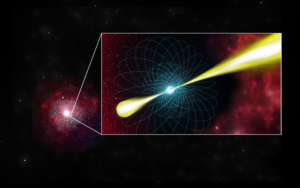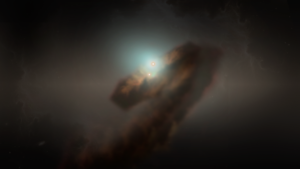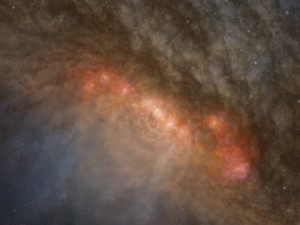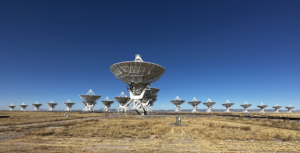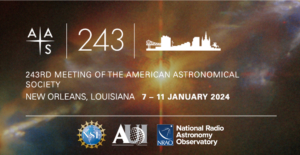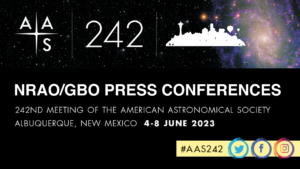A team of astronomers has found a new tool to discover pulsars. Pulsars are rapidly rotating neutron stars that blast out pulses of radiation at regular intervals ranging from seconds to milliseconds.
Orion’s Erupting Star System Reveals Its Secrets
An unusual group of stars in the Orion constellation have revealed their secrets. FU Orionis, a double star system, first caught astronomers’ attention in 1936 when the central star suddenly became 1,000 times brighter than usual. This behavior, expected from dying stars, had never been seen in a young star like FU Orionis. The strange phenomenon inspired a new classification of stars sharing the same name (FUor stars). FUor stars flare suddenly, erupting in brightness, before dimming again many years later. It is now understood that this brightening is due to the stars taking in energy from their surroundings via gravitational accretion, the main force that shapes stars and planets. However, how and why this happens remained a mystery—until now, thanks to astronomers using the Atacama Large Millimeter/submillimeter Array (ALMA).
Stellar Explosions and Cosmic Chemistry
Astronomers have discovered the secrets of a starburst galaxy producing new stars at a rate much faster than our…
Mystery of Star Formation Revealed by Hearts of Molecular Clouds
An international team of astronomers has revealed mysterious star formation at the far edge of the galaxy M83. This research was presented today in a press conference at the 243rd meeting of the American Astronomical Society (AAS) in New Orleans, Louisiana. The research used several instruments operated by the National Science Foundation’s National Radio Astronomy Observatory (NRAO), including the Atacama Large Millimeter/submillimeter Array (ALMA), the Karl G. Jansky Very Large Array (VLA), and the Green Bank Telescope (GBT), along with the National Astronomical Observatory of Japan’s (NAOJ) Subaru Telescope and the NASA Galaxy Evolution Explorer (GALEX).
NRAO in the press at AAS 243
New scientific results from the Atacama Large Millimeter/submillimeter Array (ALMA), the Very Large Array (VLA), and Green Bank Observatory…
NRAO and GBO Results Presented at Multiple AAS 242 Press Conferences
New scientific results from the Very Long Baseline Array (VLBA), the Very Large Array (VLA), and the Green Bank Observatory (GBO) will be revealed at multiple press conferences during the 242nd meeting of the American Astronomical Society (AAS) from June 5-7, in Albuquerque, New Mexico.






